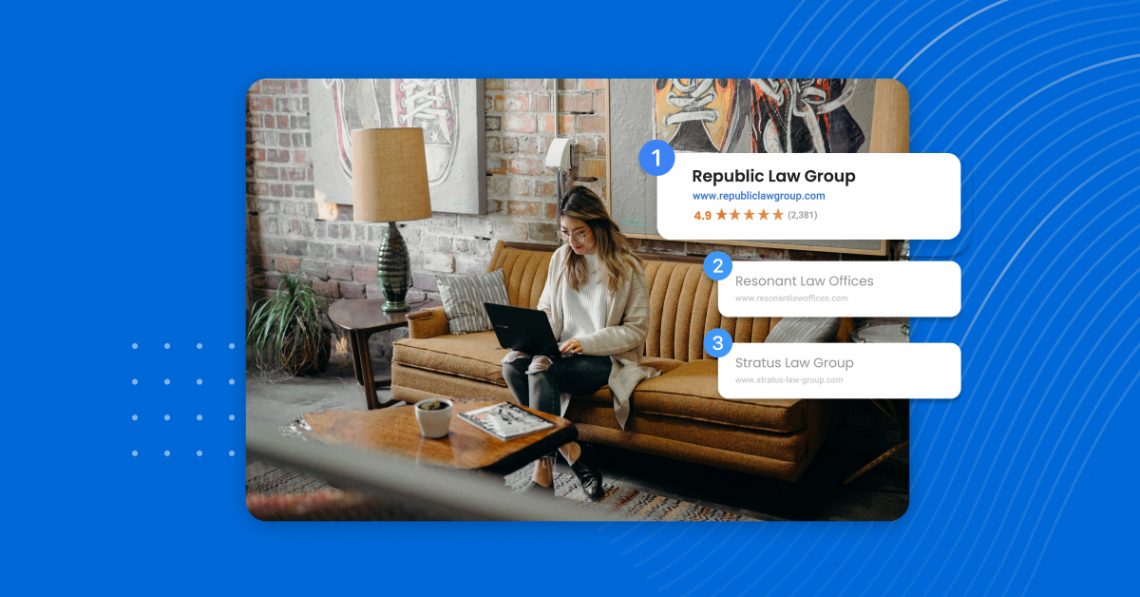As a business owner, you already know marketing is essential to your success – but do you have a plan to reach local customers?
In this article, we’re going to take a closer look at local marketing. You’ll learn what local marketing is, why it works, and easy ways to overcome problems you might face. These expert tips can help both brand-new and well-established businesses reach new and existing customers in their immediate area.
Table of contents
What is local marketing?
Local marketing, also known as local store marketing or neighborhood marketing, targets people within a certain area based on the physical location of a business. That said, local marketing isn’t just for small businesses. It can also help national brands with a strong local presence. For example, a national grocery store chain could use a local marketing plan to advertise its stores in specific neighborhoods or regions.
Common types of local marketing
The primary goal of local marketing is to reach people who are physically present in a certain location, like a neighborhood or a region. Local marketing can also help your business reach customers you might not have reached through more traditional marketing channels. Here are some common examples:
- Promotions targeting people in a neighborhood, like offering an exclusive promotion on social media that local customers can only redeem in-store.
- Sourcing local materials, like a local restaurant sourcing locally grown food.
- Products and services catering to the local market needs, like a kayak rental shop located near the beach.
- Community involvement, like a home improvement chain store sponsoring a local high school’s homecoming football game.
The impact of local business marketing
Local marketing works because it’s tailored to people in a specific area instead of a national audience. Local marketing strategies focus on the customs of a certain area and use those customs in marketing campaigns, promotions, and pricing. Restaurants, medical offices, and other businesses people usually visit in-person benefit most from local marketing.
Take an online-to-offline approach to convert customers
It’s important to remember how much your customers value convenience. For example, modern customers are most likely to shop with online stores that also offer immediate in-store pickup nearby. No matter their size, businesses with an online-to-offline approach will always have an easier time converting customers.
The benefits of local marketing
- Targets a specific audience. Businesses of all sizes can benefit from local marketing strategies that target a specific audience and tailor campaigns to meet local needs. An easy way to learn more about your customers is through the people who interact with them every day: your employees. Staff insights into customer preferences can increase foot traffic, boost sales and help you grow your business.
- Builds brand awareness and name recognition in the community. Whether you’re a mom-and-pop shop or a national brand, sponsoring a Little League team or setting up a booth at the county fair can help you reach people who might not otherwise know about your business.
- Builds trust and credibility with potential customers. For example, if you’re a new restaurant owner, getting involved with your local Chamber of Commerce or sponsoring a local event can show potential customers that you’re invested in your community.
- Fosters relationships with other businesses in your community. By getting involved and supporting your community, you will inevitably develop relationships with other businesses. These relationships can result in referrals, cross-promotions, and joint ventures, all of which can help you reach new customers and grow your business.
The challenges of local marketing
It can be tough for businesses trying to establish themselves in a specific area. You’ll need to know your target market and be able to interact with them anywhere. The following are the three main challenges businesses face when trying to implement a local marketing strategy:
- Having inconsistent marketing due to a lack of time, budget, and resources. Local business marketing can take up a lot of your time and resources, especially if you don’t have dedicated marketing staff or a dedicated marketing budget.
- Standing out from the competition. With so many businesses competing for attention, it can be hard to stand out. But if you’re strategic about your local marketing efforts, you can develop a plan that will help you cut through the noise and reach your local audience.
- Measuring your local marketing efforts’ return on investment (ROI) can also be challenging. You might see an uptick in sales or foot traffic, but it can be hard to tie those things directly to your marketing campaigns. If you’re not careful, you could spend a lot of money on local marketing without seeing a direct return.
Local marketing runs the risk of being too costly with little to show, so it’s a good idea to have a plan and set goals before you start spending money or dedicating any resources. Otherwise, you’ll likely find yourself floundering without any clear direction.
Simple ways to overcome obstacles
Despite the challenges we mentioned above, local marketing can be a great way to attract and retain customers. There are quick and easy ways to overcome common obstacles and make local marketing efforts worth your time and money.
The first thing you should do is search for your company’s name online. Your online business listing is a quick summary of the information that helps customers find, choose, and visit your location. Here are three ways to make sure your online listings truly showcase your business:
- Claim your Google Business Profile (GBP). If you haven’t already, claim your GBP and add information like your business address, hours, and phone number. You can control how your business appears on Google Search and Maps using your GBP.
- Optimize your GBP. Your GBP is key to being found in local search results and being chosen by potential customers. You can optimize your GBP by adding photos, videos, offers, a great description of your business, and other unique content.
- Confirm your listings online are consistent. It’s important to make sure your listing information is correct and consistent across all major sites including Facebook, Yellowpages, and Better Business Bureau (BBB). You should also make sure your business information is listed on any industry-specific sites. Having a consistent name, address, and phone number (NAP) across all of your listings will help you score a high ranking. You have a much better chance of ranking on “near me” searches if your business listings are consistent.
Your online listings are considered proof of prominence, and they’re an extremely important factor in determining your local search ranking. If managing your online listings seems too time-consuming, there are solutions that can help. With Birdeye Listings, you can manage, update, and track info for all your locations with the ease of a single dashboard. Customers will easily be able to find your business wherever they’re searching (i.e., Google, Facebook, Maps, Alexa, etc.).
Get more customer reviews
Once your online listings are all set, you should take a closer look at your customer reviews. Reviews of your business help search engines determine how active and trustworthy your company is by “reading” what customers are saying about it. Over 90% of customers read online reviews before choosing a business – and the more reviews you have, the more likely you are to attract new customers.
Let’s say you want to receive, manage, and promote reviews. With Birdeye Reviews, you can do all of those things at once with a single, streamlined dashboard.
Local marketing strategies
For businesses looking to reach a local audience, there are a few strategies that tend to be particularly effective. The key is to find the right mix of strategies for your business and your budget.
Online marketing
By creating a website and using SEO techniques, businesses can reach people who are specifically searching for their products or services. That’s where local SEO comes in. By optimizing your site for local search engines, you can ensure that people in your area will be able to find your site. For example, including your city and state in your titles and tags can help search engines understand your location. For more information on how to optimize your website for local SEO check out our new guide, SEO Local Search Checklist.
Direct marketing
Direct marketing will help you advertise your products or services to specific people. Unlike indirect marketing, there’s no middleman involved (like a newspaper, magazine, or TV show). Direct marketing is easy to customize and measure. For more information, check out our article on how to connect with customers using a direct marketing strategy.
Print advertising
Traditionally, businesses have used print advertising to target specific areas. For example, a local grocery store might place ads in the weekly circulars that are delivered to homes in its delivery area. Or a car dealership might place ads in the local newspaper or auto trader magazine. The benefit of this approach is that it can be very cost-effective since businesses only have to pay for the ads that will actually be seen by their target customers.
Social media
Social media platforms like Facebook, Twitter, and Instagram are great ways to connect with potential customers in your local area. Make sure to claim your business’s profiles on all of the major social media platforms, and fill out your profile information completely. Then, start posting engaging content that will appeal to your target audience. You can also use social media to run local promotions and contests. While you’re at it, viral marketing can seriously help your business too.
Get involved with your community
One of the best ways to market your business locally is to get involved with your community. This could involve sponsoring a local event, donating to a local charity, or volunteering your time to a local cause. By getting involved with your community, you’ll not only be doing some good, but you’ll also be raising awareness for your business.
How Birdeye can help local businesses
As a Google partner, Birdeye has helped over 200,000 businesses manage their digital presence. Birdeye’s comprehensive platform can help your local business succeed, whether you have one or multiple locations. With our innovative toolkit, you’ll be able to attract new leads, convert them into customers, request feedback, and receive referrals all in one place.

Originally published









